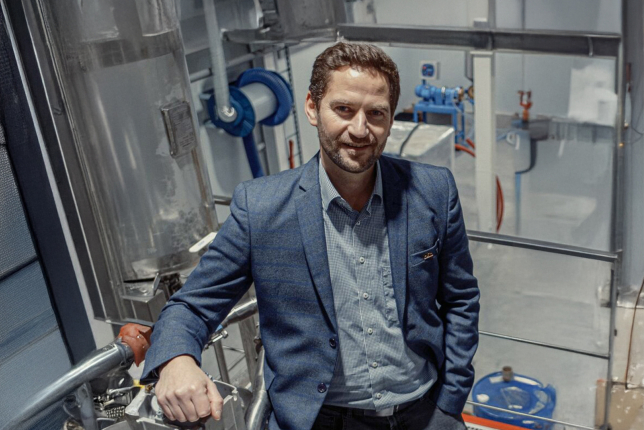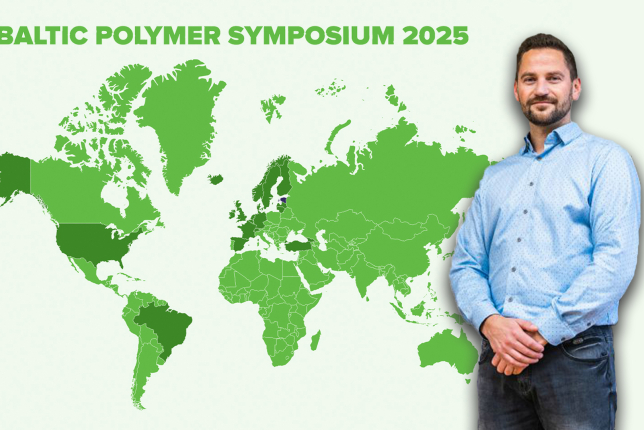LSIWC Broadly Represented at the Baltic Polymer Symposium 2025
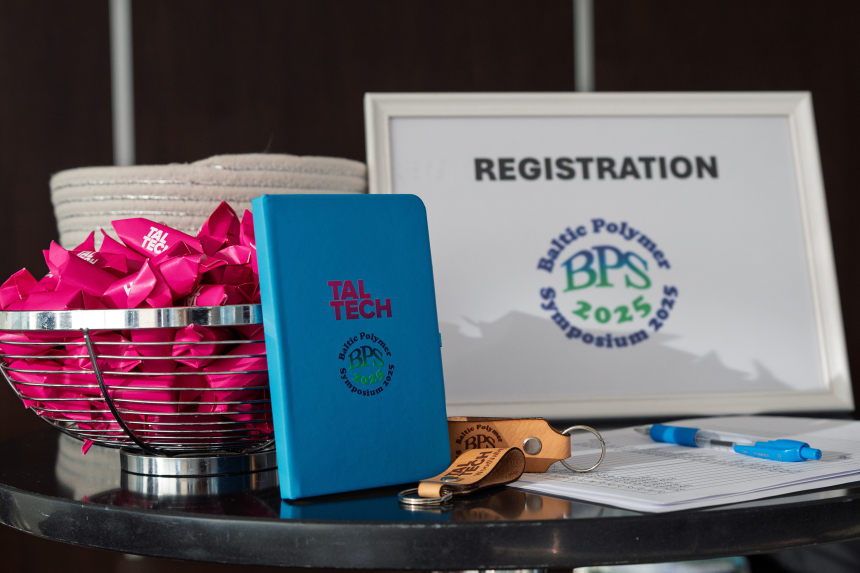
From October 1–3, 2025, the 23rd Baltic Polymer Symposium (BPS 2025) took place in Tallinn, Estonia, gathering participants from across the Baltic region and Europe. The symposium was organized by the TalTech Wood Valorisation HUB, with a strong focus on the development of bio-based materials, the role of polymer science in the circular economy, and collaboration between academia and industry.
This year, the Latvian State Institute of Wood Chemistry (LSIWC) was represented by a broad team of researchers from the Polymer and Lignin Chemistry Laboratories, who presented four oral and five poster presentations covering topics such as bio-based polymer chemistry, waste recycling, new composite materials, and innovative applications.
Plenary Lecture
Head of the Biorefinery Laboratory at the LSIWC Dr. sc.ing. Jānis Rižikovs – Versatile Roles of Birch Bark Suberinic Acids: From Wood Adhesives to Polymer Building Blocks
In his plenary lecture, Janis Rizikovs explored the potential applications of birch bark suberinic acids (SA) – from bio-based wood adhesives to polyurethane precursors and polymer building blocks. The study demonstrated that suberin, a component of birch outer bark previously used mainly as a by-product, can serve as a valuable renewable raw material for developing new biopolymers and composites. Composite materials derived from suberinic acids exhibited high mechanical strength and moisture resistance, providing a sustainable alternative to synthetic adhesives and significantly reducing the environmental footprint of materials.
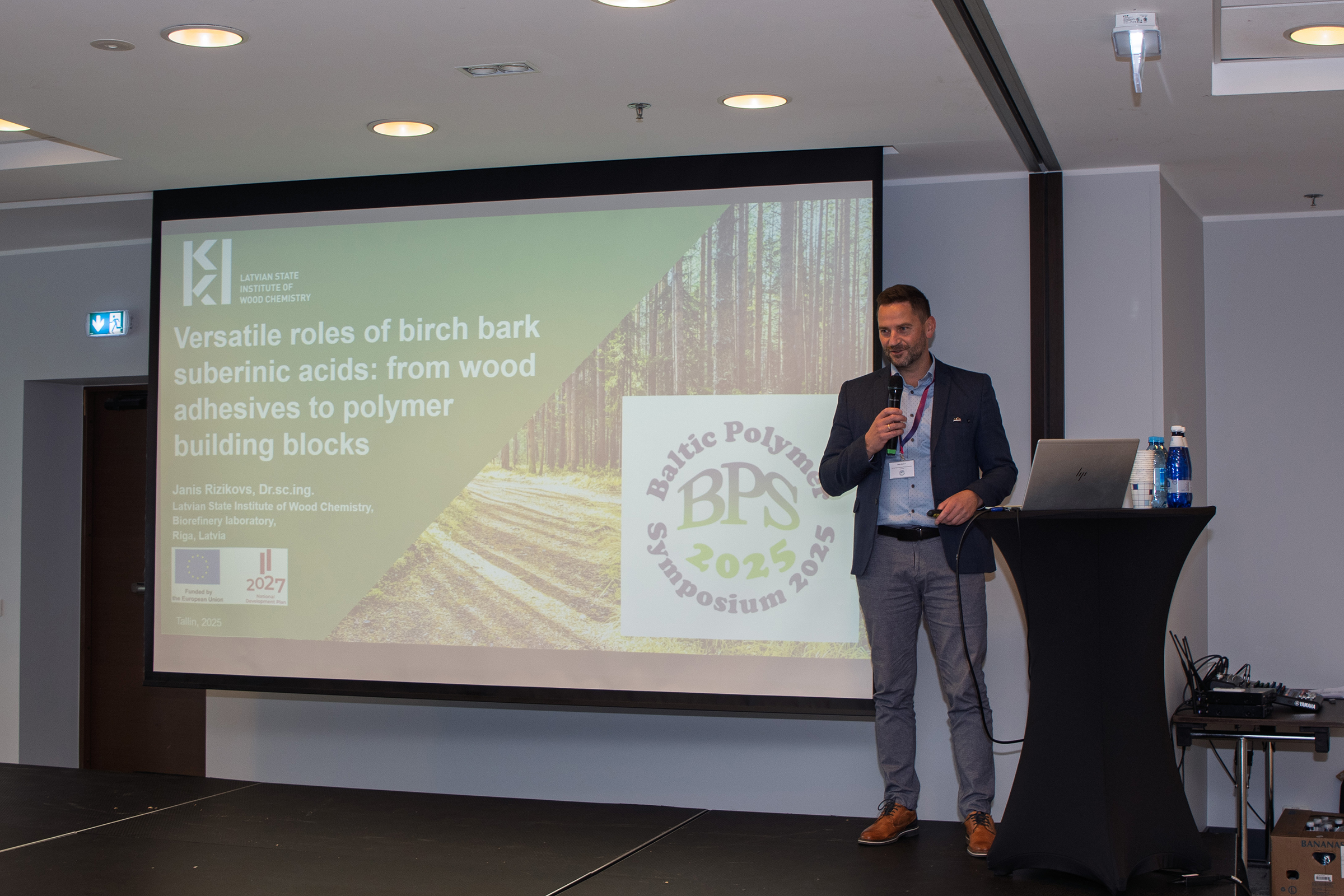
Oral presentations
Leading Researcher of the Polymer Laboratory Ph.D. Anda Fridrihsone presented “Environmental Assessment of Aza-Michael Donors Based on Used Cooking Oil for Reprocessable Thermoset Polymers”, while researcher Mg.chem. Arnis Abolins discussed the chemical aspects of new compound development in “Valorization of Used Cooking Oil into Aza-Michael Donors for Reprocessable Thermoset Polymers”.
Both researchers represented one of the most progressive fields in modern polymer chemistry– reprocessable and recyclable thermoset polymers derived from renewable resources that is being studied in LCS FARP project Nr. lzp-2024/1-0333 TReResin. Their presentations reflected the core idea of the TReResin project: transforming waste streams such as used cooking oil into reprocessable thermoset polymers, while assessing their environmental impact through life cycle analysis (LCA) to identify “hot spots” and areas for improvement.
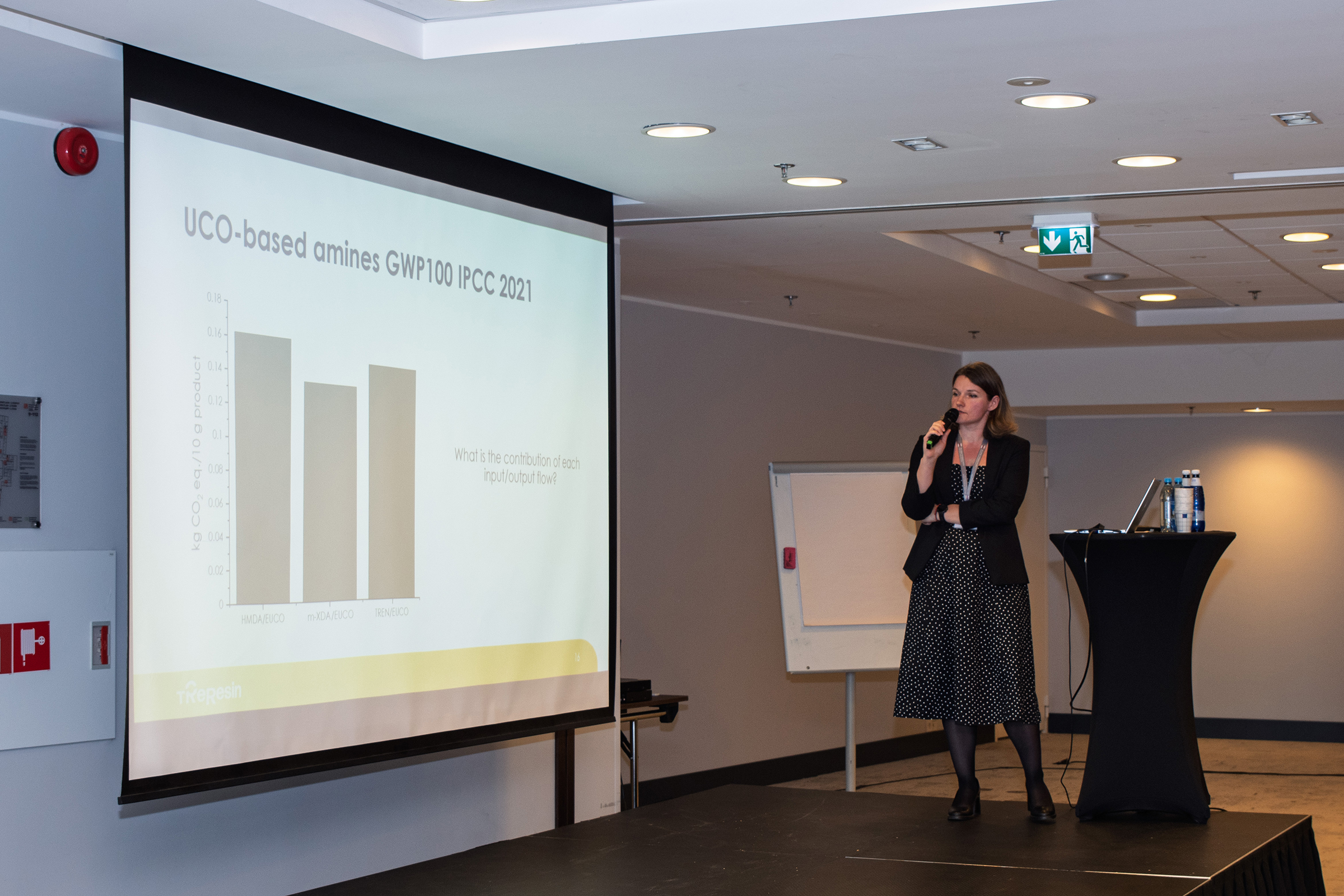
Leading Researcher of the Polymer Laboratory Ph.D. Miķelis Kirpļuks delivered a presentation on Horizon Europe project No. 101157840 Polymers-5B, titled “Design and Characterisation of Bio-Based β-Amino Polyester Resins with Reprocessable Thermoset Behaviour”.
The study focused on the development of bio-based β-amino polyester vitrimers – materials combining the mechanical strength of thermosets with the reprocessability of thermoplastics through dynamic covalent bonds. Using Priamine™ 1074 and soybean oil-derived acrylates, covalently adaptable networks were synthesized, demonstrating promising properties for recyclable adhesives and bio-based composites.
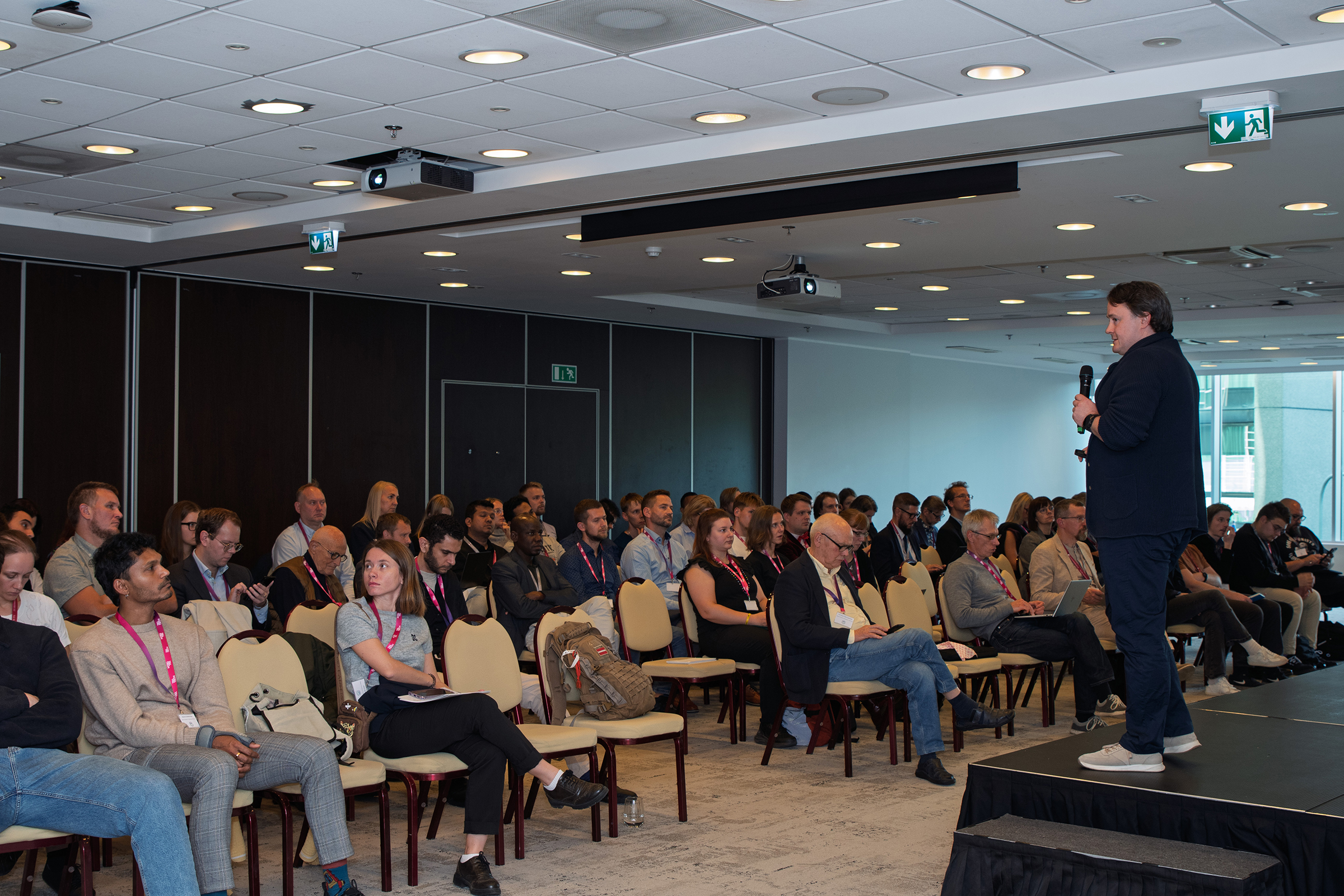
Poster Presentations
Leading Researcher of the Polymer Laboratory Ph.D. Aiga Ivdre – Effect of Suberin Depolymerization Conditions on the Flammability and Thermal Stability of Rigid Polyurethane Foams – results of project Forest4LV.
The study analyzed the effect of birch bark suberin depolymerization conditions on the flammability and thermal stability of rigid polyurethane (PUR) foams. Three suberinic acid fractions obtained under different fractionation conditions, were compared to assess their influence on polyol viscosity and PUR foams’ mechanical performance and thermal stability. The results showed no significant differences in flammability, although polyol viscosity and foam thermal stability varied depending on the fraction, highlighting the importance of depolymerization conditions in developing bio-based PUR materials.
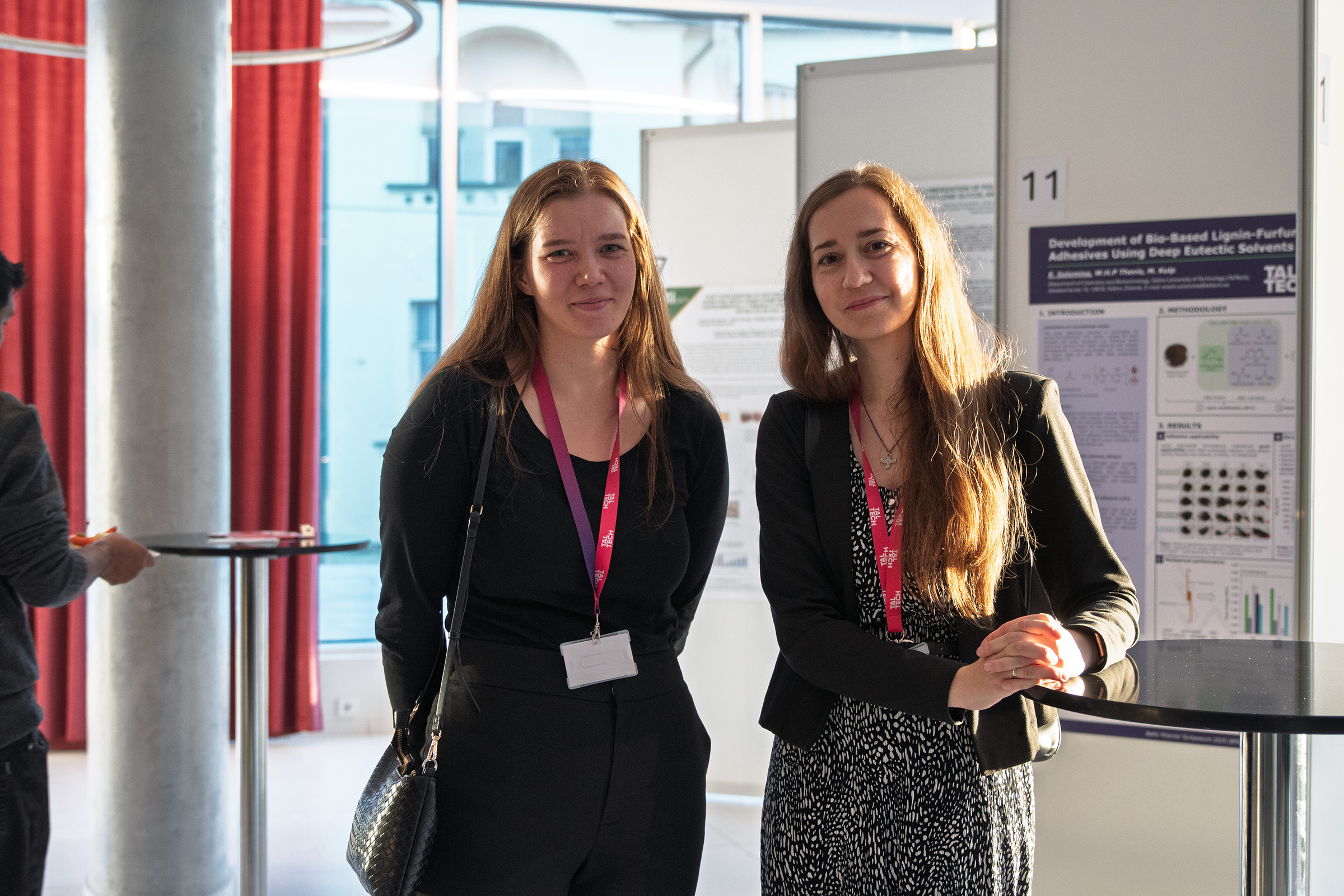
Researcher of the Laboratory of Lignin Chemistry Dr.chem. Anrijs Verovkins – Functionalization of Softwood Sawdust Generated from Pine Wood Honeycomb Production for Obtaining Environmentally Friendly Composite Materials Based on Recycled Polypropylene – results of project Forest4LV.
In the study by Anrijs Verovkins, a functionalization method for pine sawdust was developed using alkaline hydrolysis and birch bark suberinic acids as a biolubricant to enhance the interfacial compatibility between wood fibers and recycled polypropylene in wood–polymer composites (WPC). The results revealed improved mechanical strength, reduced water absorption, and enhanced processing performance during extrusion, confirming the potential of this approach for the development of environmentally friendly composite materials.

Researcher of the Polymer Laboratory Mg.sc.ing. Beatrise Stūre-Šķēla – Depolymerization of Polyurethane Foam Waste with Diethylene Glycol and Tall Oil-Based Polyols.
The study investigated the depolymerization of polyurethane and polyisocyanurate (PU/PIR) foam waste using diethylene glycol (DEG) and tall oil-based polyols. Results indicated that recycled polyols with appropriate physicochemical properties can be obtained at lower temperatures and with less DEG, while tall oil-based polyols increased the share of renewable raw materials in the final product. The research demonstrated the potential of this approach for polyurethane waste recycling and resource circularity.
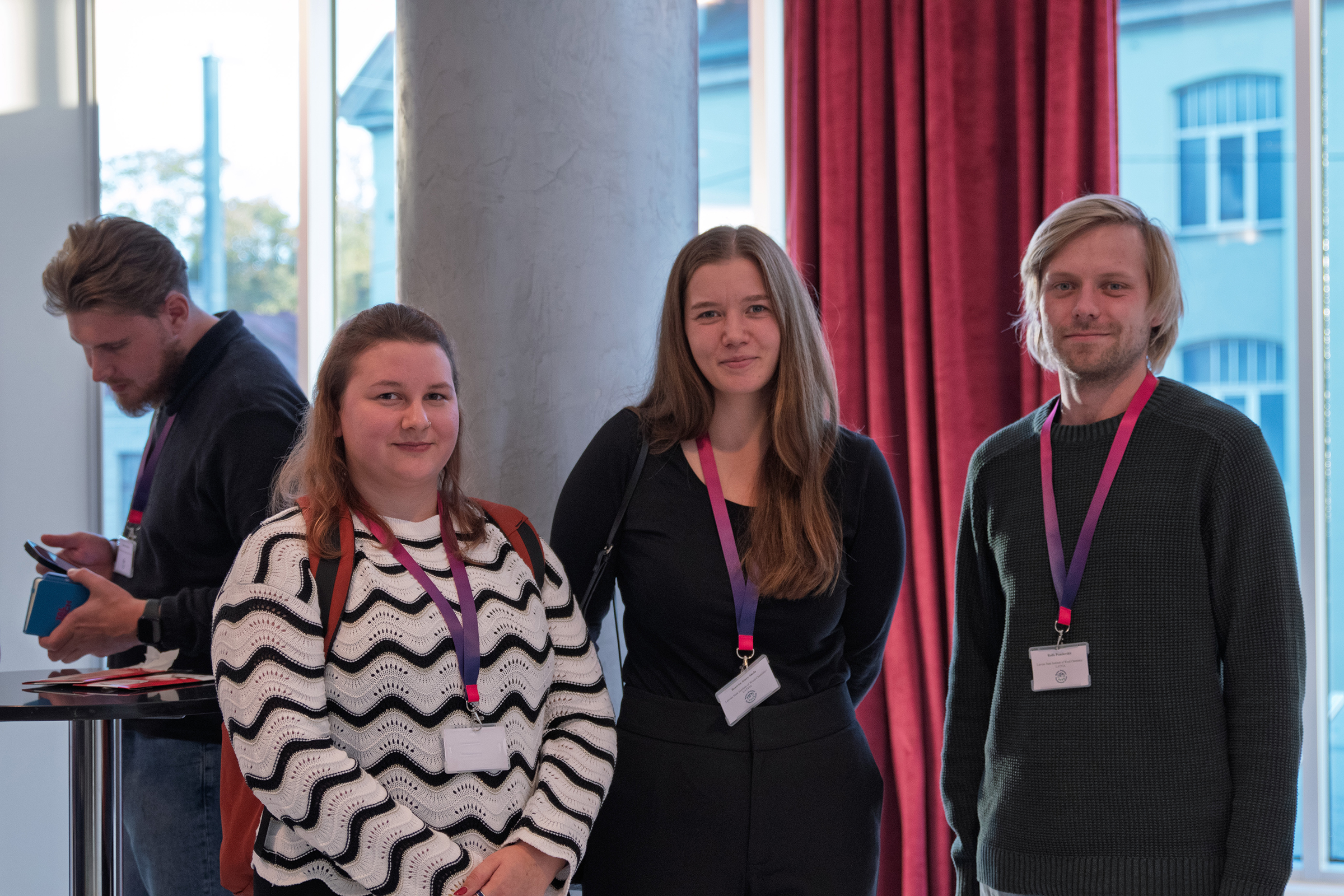
Researcher of the Polymer Laboratory Ph.D. Ralfs Pomilovskis – Polymer Resins from Sustainable Origin Carboxylic Acids through the Michael 1,4-Addition.
The study focused on the synthesis of thermoset polymers from renewable second-generation feedstocks – tall oil fatty acids and soybean oil. Two-component resin systems were developed that cure at room temperature, forming transparent and rigid polymers with potential applications in composite materials. The research was carried out within the project SuReComp (Nr. 1.1.1.9/LZP/1/24/031).
Engineer of the Polymer Laboratory Bc.chem. Vanesa Dhalivala – Innovative Approach for Design of Rotor Blade Core Using Rigid Polyurethane Foams.
The study developed an innovative approach to modeling helicopter rotor blade cores using rigid polyurethane foams with a polyol component derived from renewable and recyclable resources. Foams of varying densities (30–70 kg/m³) were produced using environmentally friendly catalysts and blowing agents, and their thermal conductivity and mechanical properties were characterized. Finite element modeling helped identify the optimal foam structure for rotor blade cores, potentially reducing vibration and fuel consumption in future aviation technologies.
The LSIWC presentations attracted wide interest from both the academic and industrial communities, fostering interdisciplinary collaboration between science, industry, and the European Green Transition goals.
